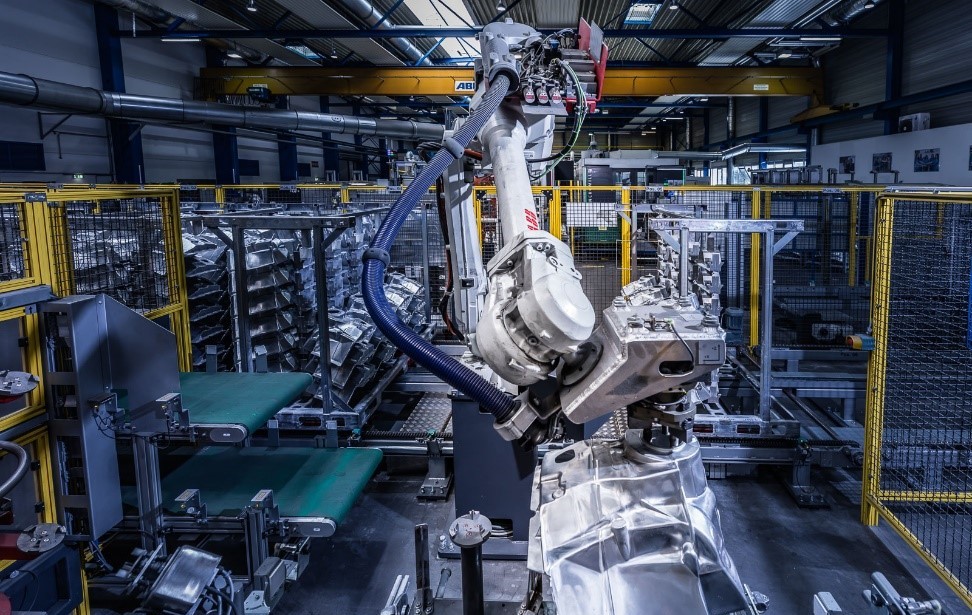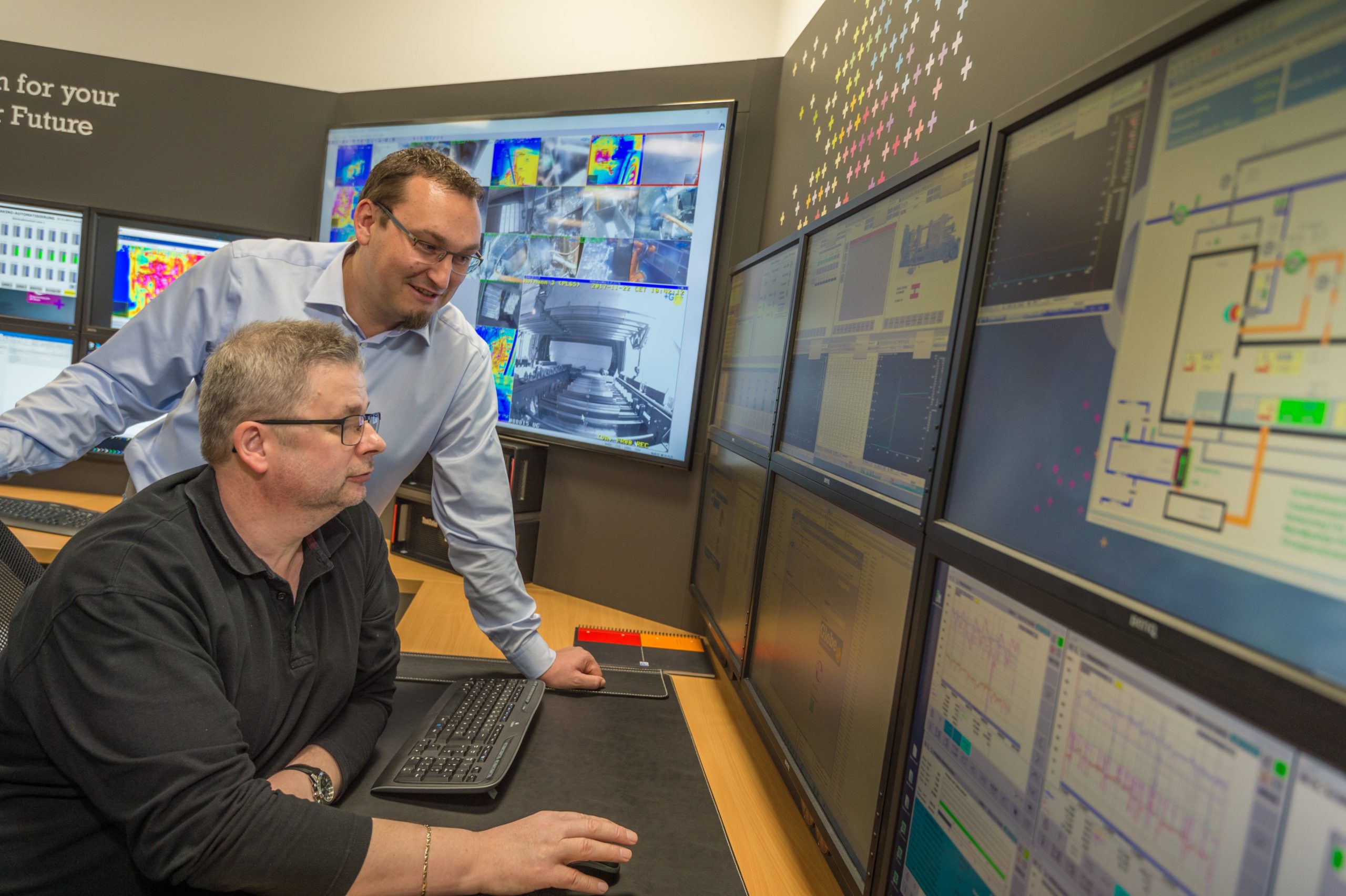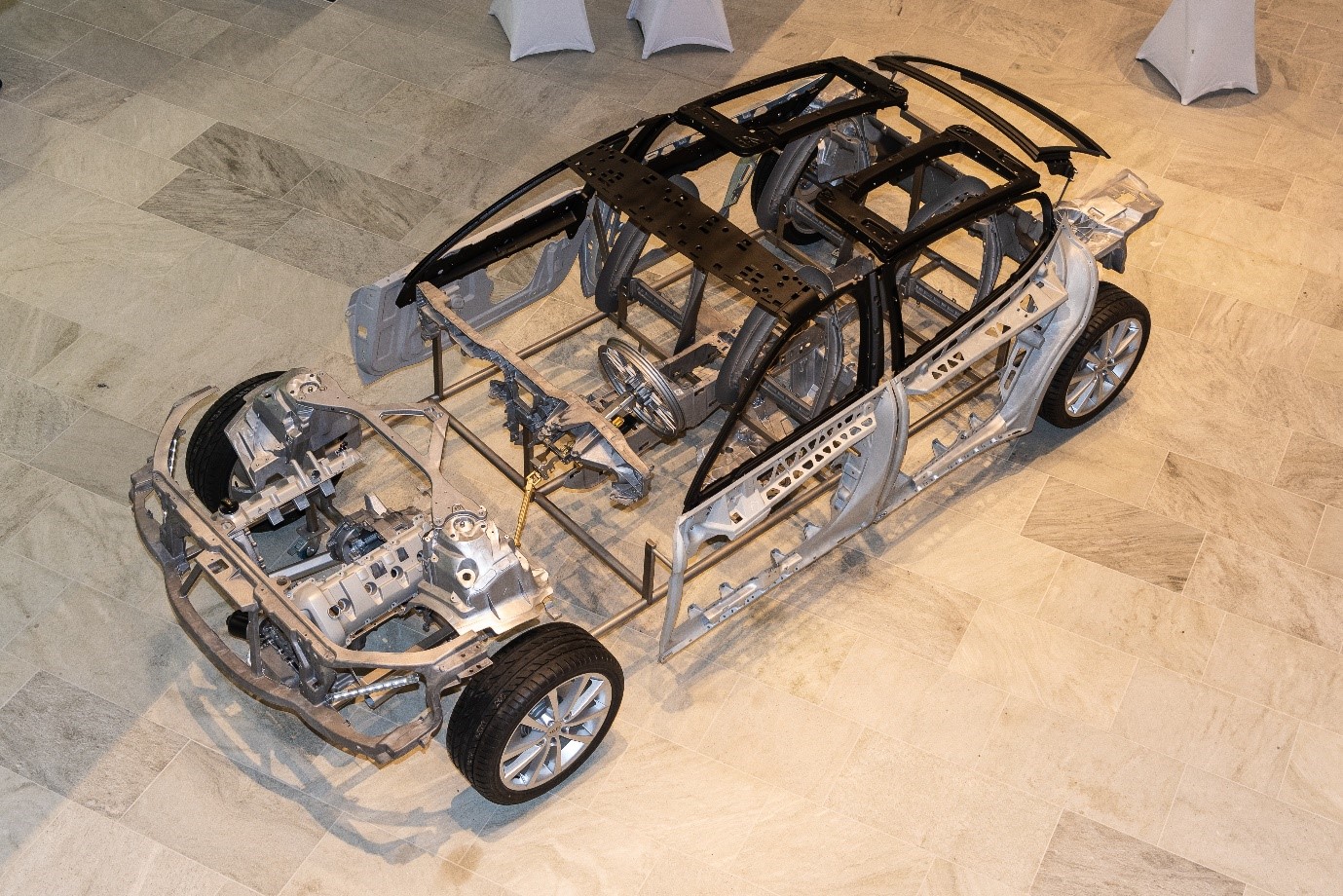Lesen Sie diese Mitteilung auf Deutsch.
GF Casting Solutions, a division of the Swiss industrial corporation GF, is one of the leading solution providers of lightweight components in the mobility and energy industry. The company is using AI to be able to faster optimize the production process during the ramp-up phase of a component to maximize quality while minimizing energy consumption and waste.
GF Casting Solutions with its headquarters in Schaffhausen, has been driving its digital transformation for many years, using modern technologies not only to improve efficiency but also to innovate for the benefit of its customers. In the area of lightweight components for the mobility and energy industry, GF Casting Solutions, one of the three divisions of GF, is known as a driving force for innovation and is thus leading the industry in shaping the development of sustainable mobility leadership.
Focus on environmental impact and manufacturing costs
To take advantage of emerging new technologies such as Artificial Intelligence (AI), the GF Casting Solutions R&D team based in Switzerland has partnered with AI pioneer Microsoft. The objective of the joint efforts was to establish a solid, data driven understanding of GF Casting Solutions’ complex casting processes which contain many steps. “Environmental impact as well as manufacturing costs increase with every process step”, explains Ilias Papadimitriou, Technical Expert at GF Casting Solutions. “Hence, it is desirable to determine as early in the process as possible whether a produced part will make it all the way to the customer or whether it will need to be scraped in a later process step.” Reasons for scraping can be manifold, says Ilias Papadimitriou, ranging from distortion that exceeds the customer’s tolerance specifications to porosity in the produced part.

Using Machine Learning to identify most influential parameters
With the help of Microsoft’s Azure Machine Learning cloud service, the data generated during the high-pressure die-casting process was combined with distortion measurements and other process data obtained along the process chain. “This data was then analyzed for patterns using Microsoft Research’s latest advancements in automated machine learning”, says Marc Schöni, Cloud Solution Architect and Specialist for Data and AI at Microsoft Switzerland. “Using Azure Machine Learning’s built-in model interpretability capabilities, we were able to identify the most influential process parameters.” These insights were later discussed with and validated by the GF’s production experts.

More joint projects in the pipeline
The team was able to make suggestions on how to improve the production ramp-up process to maximize quality while minimizing energy consumption and waste. The implemented actions, which will be then integrated into the production process and first indications show that it could lead to a significant reduction of scrap rates during the ramp-up phase of production. Ilias Papadimitriou says: “By using modern technologies like AI, we will be able to continuously optimize our processes and products not only for the benefit of our customers, but also for the preservation of the environment. Therefore, we will continue to use our partnership with Microsoft to innovate and reduce our environmental footprint through the power of AI.”





